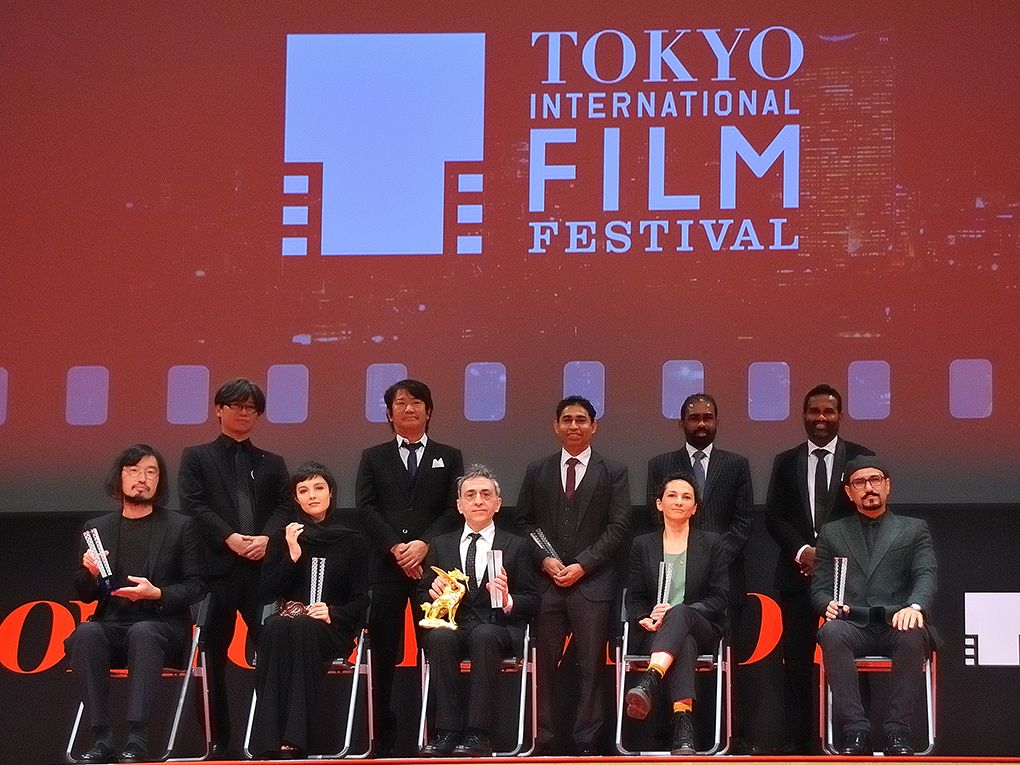As Osaka’s World Expo 2025 draws to a close on October 13, a new spotlight shifts to Japan’s capital — a celebration of vision, culture, and imagination will soon claim center stage. From October 27 to November 5, Tokyo will host the 38th Tokyo International Film Festival (TIFF), a dazzling convergence of storytellers, world voices, and cinematic daring. Far from a simple handoff, it’s as if Japan is writing a new chapter in its cultural moment — transitioning from concrete dreams of future society to the mythic, emotional, human stories that give them life.
This year’s TIFF isn’t just about movie premieres. It’s a reckoning with what it means to dream forward, to imagine a future that’s not only technical but deeply human. As Expo 2025 closes with its theme, “Designing Future Society for Our Lives,” TIFF picks up the torch — asking: how do we translate ideas into stories? How do films not just reflect possibility, but help us live it?
Setting the Stage: Between Two Worlds
The Expo’s Last Act
Expo 2025 in Osaka has been more than a global fair. It’s been a bold experiment: a “People’s Living Lab” where 8 billion people (in concept) can engage with solutions, not just observe them. Its three subthemes — Saving Lives, Empowering Lives, Connecting Lives — have guided pavilions and installations across technology, ecology, health, and society.
By mid-October, it will conclude its six-month run, having asked visitors not only to look ahead, but to build ahead.
In a sense, the Expo has been about collective invitation — to scientists, architects, governments, thinkers, and citizens. In contrast, the Tokyo Film Festival is more intimate, a collective introspection — for artists, audiences, dreamers.
Expo’s closing feels symbolic: the world steps off the stage of ideas. Which is where cinema walks in.
TIFF’s Legacy & Role
Since its founding in 1985, the Tokyo International Film Festival has grown into a major cultural institution. It is unique in Japan — the only Japanese festival accredited by FIAPF — and ranks among Asia’s top film festivals. It has long served as a bridge between local cinema and global voices, mixing arthouse cinema, new talent, and festival heavyweights.
Tokyo’s festival is rooted in ambition: to join the likes of Cannes, Venice, Berlin — to have Japan not just consume cinema, but help define its future.
The 37th edition (2024) expanded its identity with new programming strands such as “Women’s Empowerment” and thematic symposia that explore the intersection of art and society.
Thus, TIFF comes into 2025 not as a passive showcase, but as a deliberate cultural force — a place for reflection, challenge, and possibility.
What to Expect in 2025: The Pulse of This Year’s TIFF
Bold Opening, Resonant Closing
The 2025 festival’s opening film will be “Climbing for Life” by veteran director Junji Sakamoto — a choice laden with metaphor. The act of climbing evokes struggle, ascent, reaching for summits, oftentimes in the face of gravity. For a festival launching in the wake of Expo’s closure, it feels lyric and potent.
At the other end, the closing film will be “Hamnet” by Chloé Zhao, whose previous works have been praised for their emotional clarity and human scale. It echoes what TIFF hopes to do this year: end not with spectacle but with human depth.
Between those bookends lies a lineup of global premieres, tributes, and sections across ten official categories — from “Competition” to “Nippon Cinema Now,” from animation to youth works — each one an invitation to witness storytelling in motion.
Voices of the Globe, Faces of Tomorrow
In a time of geopolitical tension, pandemic recovery, climate urgency, and cultural flux, film has a unique power. TIFF 2025 will showcase voices grappling with those very currents. From avant-garde experiments to political drama, each selection engages a vision of now and next.
Among highlights: the Centerpiece Screening will be Yoji Yamada’s “Tokyo Taxi”, a work by one of Japan’s most beloved living directors, bridging tradition and contemporary life. The festival also aims to honor cinematic icons: Chloé Zhao and Lee Sang-il are recipients of the Kurosawa Akira Award, acknowledging their contributions to world cinema and perhaps foreshadowing what TIFF reveres — directors who imagine new ways of seeing, not just new images.
TIFFCOM: The Market Where Cinema Meets Life
Running alongside the festival is TIFFCOM, an audiovisual content market from October 29–31. This event is vital. Tokyo is not merely screening films; it is turning into a hub where ideas, funding, distribution, formats converge. TIFFCOM is where filmmakers, producers, platforms, and buyers meet — where cinematic dreams find structures.
In effect, TIFFCOM is the engine under the festival’s hood: negotiating, connecting, creating.
More Than Movies: Why This Moment Matters
Culture as Infrastructure
Expo 2025 urged us to think in infrastructure — urban, digital, ecological. TIFF pushes further: culture itself is infrastructure. Films build memory, identity, empathy. When the lights go out, we don’t see data or neon; we see faces, conflicts, hopes.
Thus, the festival’s role is strategic. Japan is not merely throwing open a festival; it is signaling that in the era ahead, soft power counts: stories, voices, cultural diplomacy. In the global contest for minds, narratives are among the most potent tools.
A Hinge Between Imagination and Reality
Expo ends with logos, prototypes, blueprints. TIFF begins with questions: Which society do we want? Which inner terrain? How much of the future is in our hearts, not in circuits or steel?
This is why TIFF 2025 matters especially. It is positioned at a hinge. It asks creators not just for spectacle, but for resonance; not just new forms, but renewed purpose; not just audiences, but collaborators.
Tokyo as Canvas, Global Stories as Color
The festival’s venues — in Hibiya, Yurakucho, Marunouchi, Ginza — transform daily routines. Streets become red carpets. The city hums behind frames of film.
TIFF invites Tokyoites and visitors alike to walk between the familiar and the foreign. It asks: how do stories from remote lands hum within us? How do they help us see Tokyo anew?
Moments to Watch & Storylines to Follow
- Emerging voices: Up-and-coming filmmakers from Asia, Africa, Latin America, each bringing new language and urgency.
- Tributes & retrospectives: Festival honors of legends ground us in lineage even as we surge forward.
- Panels & symposia: Expect conversations about AI in filmmaking, representation, climate crises, and identity politics.
- Cross-media experiments: Beyond film, expect VR, interactive works, hybrid formats — TIFF is increasingly a fertile ground for innovation.
- Dialogue with the Expo legacy: A subtle thread may run between Expo’s futurism and TIFF’s humanism — the machines imagined in Osaka, the stories lived in Tokyo.
Why You Should Care — And Mark Your Calendar
If you love film, Tokyo in late October will feel electric. If you care about culture, futures, global belonging — this festival holds many of those threads.
For creators, it’s a chance to launch, to network, to connect past, present, and future. For audiences? It’s more than escape — it’s a chance to see the world three steps ahead, within walking distance.
And for the world? It’s a message: as Expo concludes, we turn to stories. The next society we build is not only measured in blueprints, but in empathy, narrative, voice.
Save the dates: October 27 to November 5, 2025. The 38th Tokyo International Film Festival begins its call, in the heart of a Japan that just held the world in wonder, now reaching for the minds and hearts that will carry us onward.

